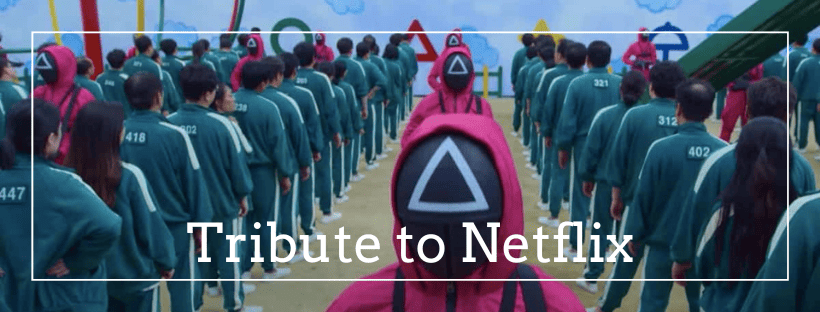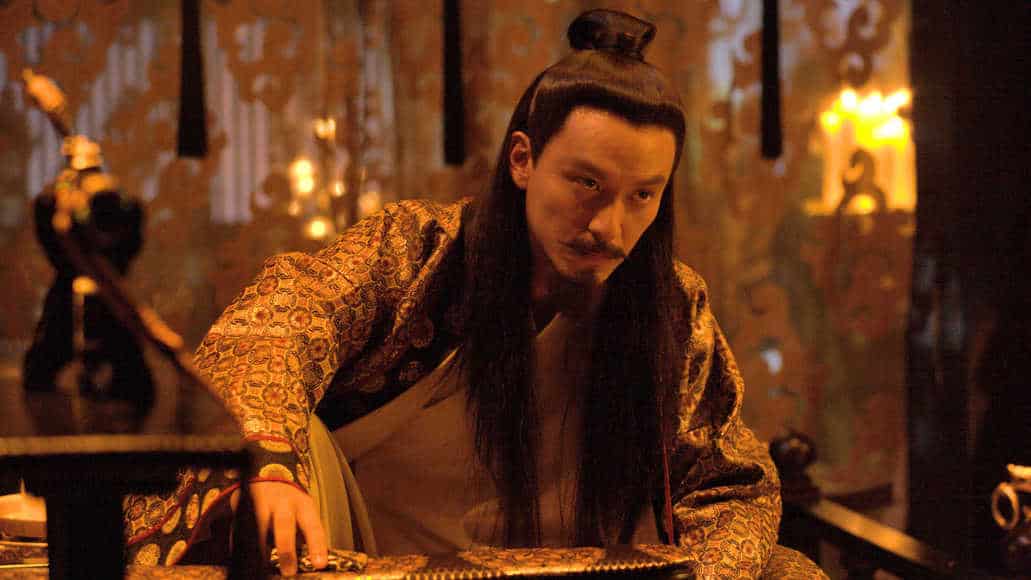It seems that with the toning down of censorship in Indonesia, filmmakers are now free(er) to deal with issues that could not be touched before, such as female desire, the harshness of the school system and the blight of social media, through realistic approaches. The recent “Like & Share” and “Photocopier” are two of the most renowned samples, with Lucky Kuswandi's latest work, “Dear David” also moving in the same direction.
Click on the image below to follow our Tribute to Netflix

Laras, despite being the second child of a poor family along with her brother and mother, is the student body president at an expensive private school, which she is able to attend due to a scholarship. Both the aforementioned facts (that she is poor and a straight A student) have not helped her in the school environment, with her frequently getting bullied, even more so since she is the principal, Mrs Indah's pet. Laras has a friend in school, gorgeous Dilla, who, as the film begins however, has alienated her, while facing her own issues, since she is deemed a “whore” after rumors spread of having sex with a boy in the school gym.
Laras, however, harbors a “dirty” secret, since she channels her award-winning writing skills into retaining a blog where she writes sexual stories about a classmate, David, whose single-father is also a family friend. When her blog finds itself in the social media of the school, the boy becomes the object of ridicule, while Dilla is soon targeted as the author, which brings her a number of issues with the school. David actually realizes who the author is, but promises to Laras to keep it a secret, if he fixes him up with Dilla, without realizing, though, that Laras is, obviously, in love with him.
Lucky Kuswandi directs a teenage drama with social implications, in an effort to make a number of comments for the lives of youths in Indonesia nowadays. The impact social media can have, particularly in the school environment where the kids can be quite cruel is a central one. The way the faculty and especially Mrs Indah functions, point towards an authoritarian regime which can be perceived as a comment regarding Suharto's rule. That kids need the support of their parents if they are ever to stand up to the system is another one, while freedom of speech, and the sacrifices it needs in order to be established are communicated quite eloquently in the finale of the movie. Lastly, female desire and the fact that it does exist, in a concept that used to be taboo in the country, is also communicated throughout the movie, with the rather colorful and extravagant visualizations of Laras's stories and the finale with her mother being among the most entertaining aspects of the film.
Regarding the teenage drama, a number of favorite elements are here also. An erotic triangle that is shaped due to lack of both communication and understanding is one of the most entertaining, if somewhat excessive aspects, particularly in the way the protagonists come together and fall apart time and time again. This excessiveness, however, appears throughout Kuswandi's work in the title, with the plethora of commentary, episodes and the overall characterization of Dilla being convoluted, particularly through her various actions throughout the story. Caitlin North Lewis suffers due to the writing of her character, to the point that it is difficult to ascertain if her acting is good or not. Furthermore, the concept of David not realizing Laras's feelings goes a bit too far, while the conclusion of the triangle seems a bit naive in its optimism, something that actually applies to the whole movie.
Ahmad Hasan Yuniardi's editing raises some concerns, particularly regarding the presentation of the timeline and pacing. The numerous episodes often appear disjointed from the overarching story, and there are instances where the occurrence of certain events becomes uncertain.
On the other hand, in terms of visuals, the movie definitely thrives. Robert Cauble's cinematography captures the many settings the story takes place in with realism and artistry, with Laras's imagination coming to the screen in the most impressive manner. Lewis's beauty is also a point of focus, with the same applying to Emir Mahira as David, in a sensualist element that is the source of much entertainment and a point of equality throughout the movie.
Check also this interview
Lastly, Shenina Cinnamon is exceptional as Laras, carrying the film with the presentation of her plethora of different feelings and psychological statuses, while her chemistry with both of her co-protagonists is great. Jenny Zhang as Mrs Indah provides a much appealing villain, in a performance that is fittingly measured.
“Dear David” has a number of issues with its narrative. However, the visuals, the teenage drama, Cinnamon's acting, and the brave comments definitely elevate it beyond its shortcomings, in a movie that definitely deserves a watch.















